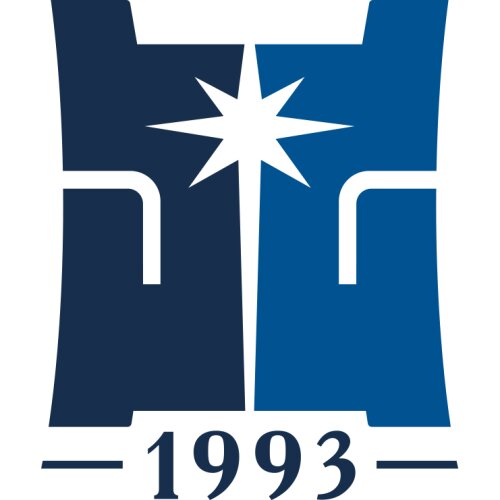Best ADR Mediation & Arbitration Lawyers in China
Share your needs with us, get contacted by law firms.
Free. Takes 2 min.
Or refine your search by selecting a city:
List of the best lawyers in China
About ADR Mediation & Arbitration Law in China
Alternative Dispute Resolution (ADR) in China, encompassing mediation and arbitration, is a vital component of the country's legal system designed to resolve disputes outside the courtroom. This process is characterized by its efficiency, confidentiality, and flexibility, making it an appealing option for both domestic and international parties. Mediation is a more informal process involving a neutral third party who facilitates discussions to help the parties reach a voluntary agreement. Arbitration, on the other hand, involves a more formal procedure where an arbitrator renders a binding decision. China's legal framework for ADR has been evolving, with the Arbitration Law and various regulations governing its practice, making it an attractive hub for resolving commercial disputes, especially with its rapid economic growth and increasing international business engagements.
Why You May Need a Lawyer
While ADR processes are known for being simpler than traditional litigation, legal expertise can be instrumental in ensuring a favorable outcome. Common scenarios where legal help is beneficial include dealing with complex commercial disputes, navigating the intricacies of cross-border transactions, interpreting contracts, and ensuring compliance with local regulations. A lawyer specializing in ADR can offer strategic advice, represent clients in mediation or arbitration proceedings, draft necessary documentation, and help challenge or enforce arbitration awards in court if needed.
Local Laws Overview
China's legal system for ADR is underpinned by the Arbitration Law of 1994, which lays down the procedures for arbitration. Notably, foreign-related arbitration must be conducted through designated arbitration institutions, such as the China International Economic and Trade Arbitration Commission (CIETAC). Mediation is often governed by various regulations and institutional rules, such as those of the People's Mediation Law. Key aspects include the requirement for arbitration agreements to be in writing, the enforceability of arbitral awards under the New York Convention, and the roles of local courts in supporting ADR processes, such as recognizing arbitration agreements and enforcing awards.
Frequently Asked Questions
What is the difference between mediation and arbitration in China?
Mediation involves a facilitator who helps the parties reach a consensual agreement, whereas arbitration involves an arbitrator making a binding decision for the disputing parties.
Can a foreign party participate in arbitration in China?
Yes, foreign parties can engage in arbitration in China, typically through established institutions like CIETAC for disputes involving international parties.
Are arbitration awards enforceable in China?
Yes, arbitration awards can be enforced in China. China is a signatory to the New York Convention, which facilitates the recognition and enforcement of international arbitration awards.
Do I need an attorney to represent me in ADR proceedings in China?
While not mandatory, having an attorney helps ensure better handling of complex legal aspects, contract interpretations, and strategic negotiations.
How confidential are ADR proceedings in China?
Mediation and arbitration are generally confidential processes, although specifics can depend on the terms agreed upon by the parties and the particular institution overseeing the process.
What is required for an arbitration agreement to be valid in China?
A valid arbitration agreement in China must be in written form, indicate the intention to arbitrate, specify the chosen arbitration institution, and list the matters to be arbitrated.
What regulations govern mediation in China?
Mediation in China is primarily governed by institutional rules and the People's Mediation Law, which provide comprehensive guidelines for mediators and mediation procedures.
How long does a typical arbitration process take in China?
The duration of arbitration varies, but it generally takes several months to over a year depending on the complexity of the dispute and the parties’ cooperation.
Are there specific institutions in China for ADR?
Yes, notable institutions include the China International Economic and Trade Arbitration Commission (CIETAC), and the Shanghai International Arbitration Center (SHIAC), among others.
Can arbitral awards be appealed in China's courts?
Arbitral awards cannot typically be appealed, but they can be challenged on limited grounds, such as procedural issues, lack of jurisdiction, or violation of public policy.
Additional Resources
Individuals seeking assistance with ADR in China may find the following resources helpful:
- China International Economic and Trade Arbitration Commission (CIETAC) - A leading arbitration institution in China.
- Shanghai International Arbitration Center (SHIAC) - Provides alternative arbitration services.
- People's Mediation Committees - Local bodies established under the People's Mediation Law to facilitate grassroots mediation.
- Ministry of Justice of the People's Republic of China - Provides legal resources and guidance.
Next Steps
If you need legal assistance in ADR Mediation & Arbitration in China, consider the following steps:
- Research and Select a Qualified Lawyer: Look for attorneys specializing in ADR with experience in your particular area of dispute.
- Prepare Documentation: Gather all relevant contracts, communications, and documentation related to the dispute.
- Schedule a Consultation: Meet with a lawyer to discuss your situation, potential strategies, and processes involved.
- Consider Institutional Rules: Familiarize yourself with the rules of the chosen arbitration or mediation institution to understand procedures and requirements.
- Engage Proactively: Work closely with your lawyer to develop a robust strategy for mediation or arbitration.
Lawzana helps you find the best lawyers and law firms in China through a curated and pre-screened list of qualified legal professionals. Our platform offers rankings and detailed profiles of attorneys and law firms, allowing you to compare based on practice areas, including ADR Mediation & Arbitration , experience, and client feedback.
Each profile includes a description of the firm's areas of practice, client reviews, team members and partners, year of establishment, spoken languages, office locations, contact information, social media presence, and any published articles or resources. Most firms on our platform speak English and are experienced in both local and international legal matters.
Get a quote from top-rated law firms in China — quickly, securely, and without unnecessary hassle.
Disclaimer:
The information provided on this page is for general informational purposes only and does not constitute legal advice. While we strive to ensure the accuracy and relevance of the content, legal information may change over time, and interpretations of the law can vary. You should always consult with a qualified legal professional for advice specific to your situation.
We disclaim all liability for actions taken or not taken based on the content of this page. If you believe any information is incorrect or outdated, please contact us, and we will review and update it where appropriate.
Browse adr mediation & arbitration law firms by city in China
Refine your search by selecting a city.












